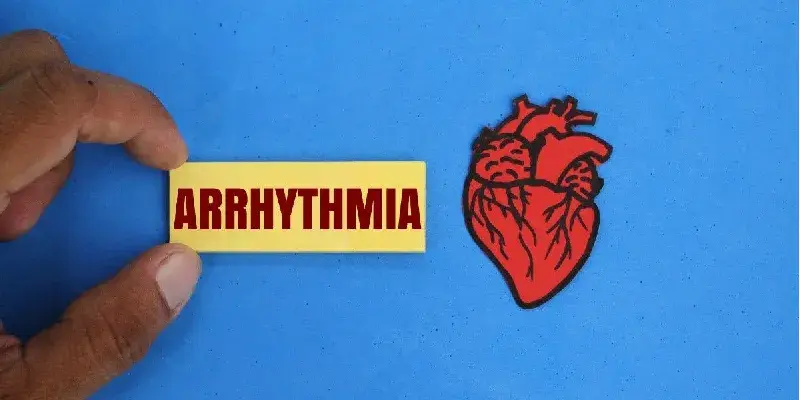Arrhythmia (irregular heartbeat)
An irregular heartbeat, or arrhythmia, is a condition where the heart beats too fast, too slowly, or in an unpredictable manner. The electrical system of the heart normally maintains a constant rhythm to guarantee that blood is pumped throughout the body efficiently. This electrical signalling is interfered with in arrhythmia, which results in an irregular heartbeat. **tachycardia** (fast heart rate), **bradycardia** (slow heart rate), **atrial fibrillation** (irregular, fast beats in the upper chambers), and **ventricular fibrillation** (disorganised electrical signals in the lower chambers, which can be life-threatening) are among the various types of arrhythmias.
Depending on the kind and severity of the arrhythmia, symptoms can include dizziness, fainting, chest pain, shortness of breath, exhaustion, palpitations (a sensation of fluttering or racing in the chest), or in certain situations, no symptoms at all. While some arrhythmias can raise the risk of stroke, heart failure, or sudden cardiac arrest, others are benign and transient.
Numerous conditions, such as coronary artery disease, high blood pressure, electrolyte imbalances, thyroid issues, excessive alcohol or caffeine consumption, smoking, certain medications, or congenital heart defects, can result in arrhythmias. Tests like an electrocardiogram (ECG), Holter monitor, event recorder, echocardiogram, or electrophysiological studies to evaluate the electrical activity of the heart are commonly used in diagnosis.
Depending on the kind and cause of the arrhythmia, treatment options may include modifying one's lifestyle, taking medication to regulate heart rate or rhythm, undergoing medical procedures like cardioversion (an electrical shock to restore normal rhythm), ablation therapy (destroying the abnormal tissue causing the rhythm issue), or implanting devices like pacemakers or implantable cardioverter defibrillators (ICDs). Many people with arrhythmias can lead normal, healthy lives if they receive the right care.

Enter at least 2 characters...
Enter at least 2 characters...
Enter at least 2 characters...
Enter at least 2 characters...
Enter at least 2 characters...



.webp)


.webp)